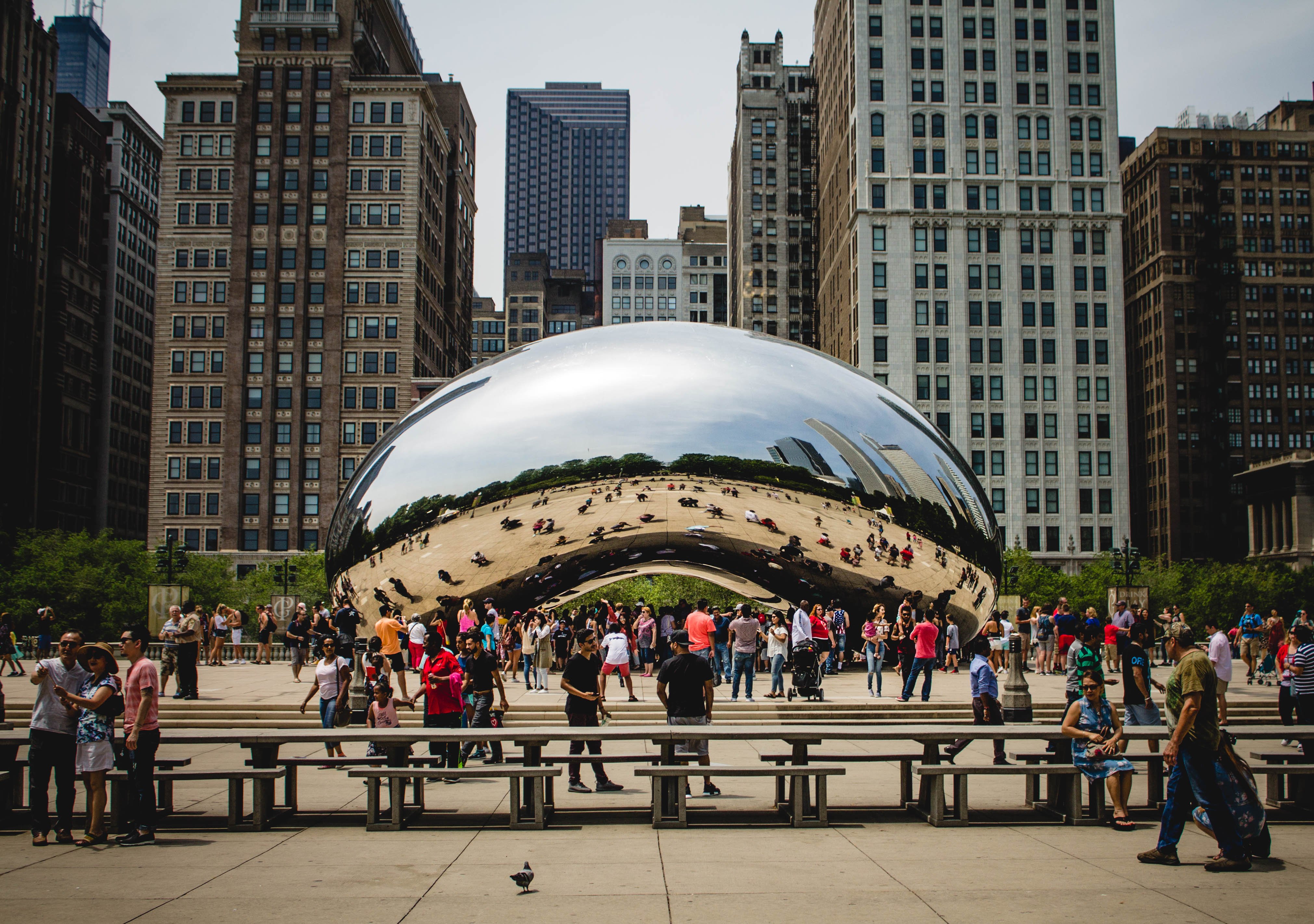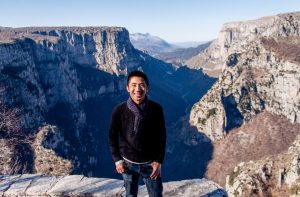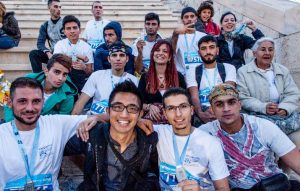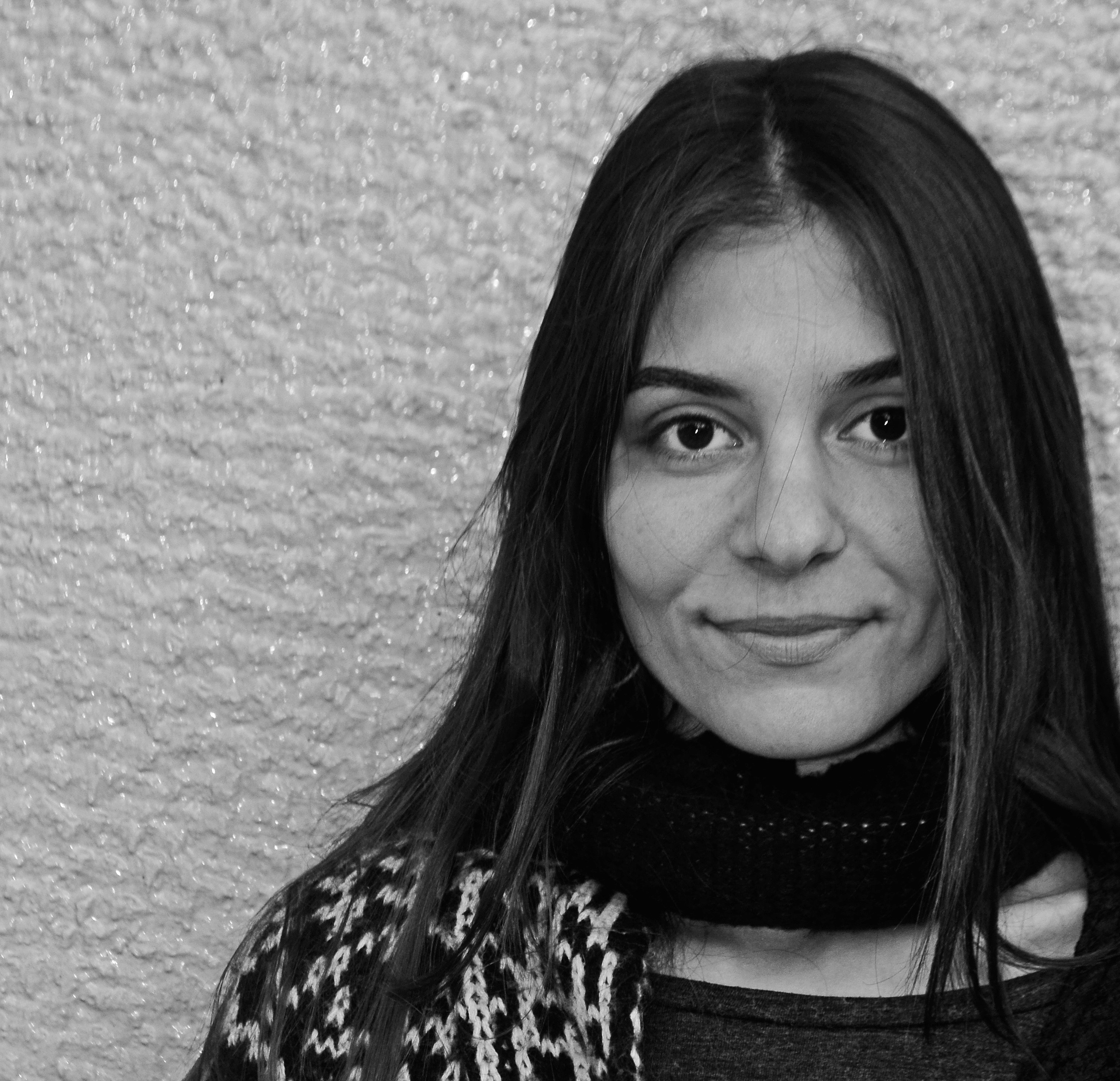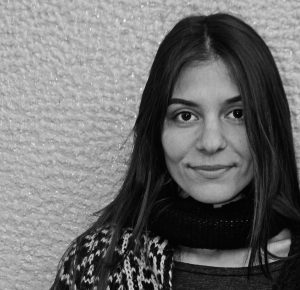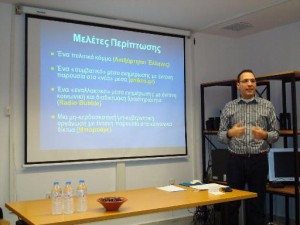By Angeliki Tsiotinou, Fulbright Foreign Student from Greece
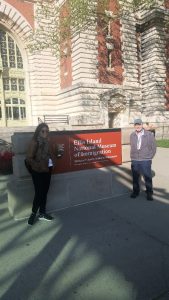
In May I visited the Ellis Island National Museum of Immigration in New York City. Dr George Tselos, the museum’s Supervisory Archivist, greatly endorsed my research project throughout the course of my fieldwork at the museum
When Fulbright brought me to the University of Illinois, Chicago in November 2017, I arrived ready to investigate the museum representations of North and Southeast European immigration to the United States with a particular– but not exclusive – focus on Greek immigration. Chicago was the ideal base for such research. The city is home to hundreds of distinct ethnic and cultural neighborhoods established during waves of migration to the city from all corners of the world that began as early as the mid-1800s.
As I pursued my research, I soon found myself reflecting on other, no less important topics, relating to the contemporary identity and role of museums. Museums today play a balancing act: answering community members’ diverse needs and backgrounds while continuously adapting to our dynamic, globalized and constantly changing society.
How can museums create a communal space in which to welcome this rich mix of sometimes-divergent perspectives and experiences, I wondered? And how can the study of museums itself help us question established notions of identity and develop innovative museum practices that address our emerging interethnic, inter-racial reality, globally characterized by increasingly complex patterns of human mobility, integration, and acculturation?
While I am still trying to find answers to these questions, my experience with Fulbright helped me realize the power that cultural practitioners have to shape people’s views of the world in a positive way. As cultural institutions, museums have a distinct role to play in forming critical reflection and debate around ongoing societal shifts and in achieving reconciliation among diverse communities.
With my academic background in material culture and cultural representation theories, my research explored how objects associated with the immigrant past have been contextualized and interpreted in U.S. museum displays, as well as how these displays help articulate our shared interpretations of the immigrant past. My fieldwork took me to a range of ethnic, cultural and immigration museums across the United States, located in cities like Chicago, Detroit, Salt Lake City, Tarpon Springs, and New York City. The visits were complemented by interviews with museum staff and members of the represented community, particularly the Greek American one.
While in Chicago, I also volunteered for a non-profit organization called Chicago Cultural Alliance, a consortium of 40 Chicago-area cultural heritage museums and centers. Through this experience, I was lucky to meet inspiring people advocating passionately for a more inclusive, culturally diverse Chicago by bringing together museums and enhancing dialogue among their communities.
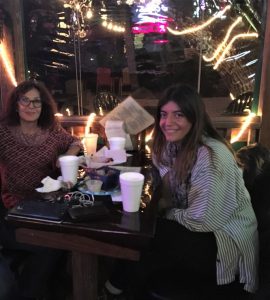
In Tarpon Springs, Florida, I met with Dr. Tina Bucuvalas who curated the ‘Greek Community of Tarpon Springs’ exhibit at the Tarpon Springs Heritage Museum. Tina’s long experience as a Curator of Arts & Historical Resources for the City of Tarpon Springs proved to be a valuable resource for me.
My Fulbright experience, also my first experience in the U.S., profoundly shaped my personal and my professional development in a variety of ways.
Researching a variety of museums and their day-to-day operations helped me see the tremendous resources that each institution devotes to achieve relevance and resonance with their community members. Speaking with community members of varying origins, ages and backgrounds, I realized that despite the differing ways in which they expressed their ethnic or cultural affiliation, they all shared a yearning for maintaining or regaining a connection to the culture of their ancestors.
My Fulbright experience empowered me. It made me realize that my voice matters and that my work is impactful.
Most importantly, it made me realize that in times of change, we – cultural practitioners and public humanities scholars – are more responsible than ever before to foster public dialogue on democracy, independence, and cultural diversity. By emphasizing what brings us all together rather than what pulls us apart, we can help shape a better future for the world that we all share.

